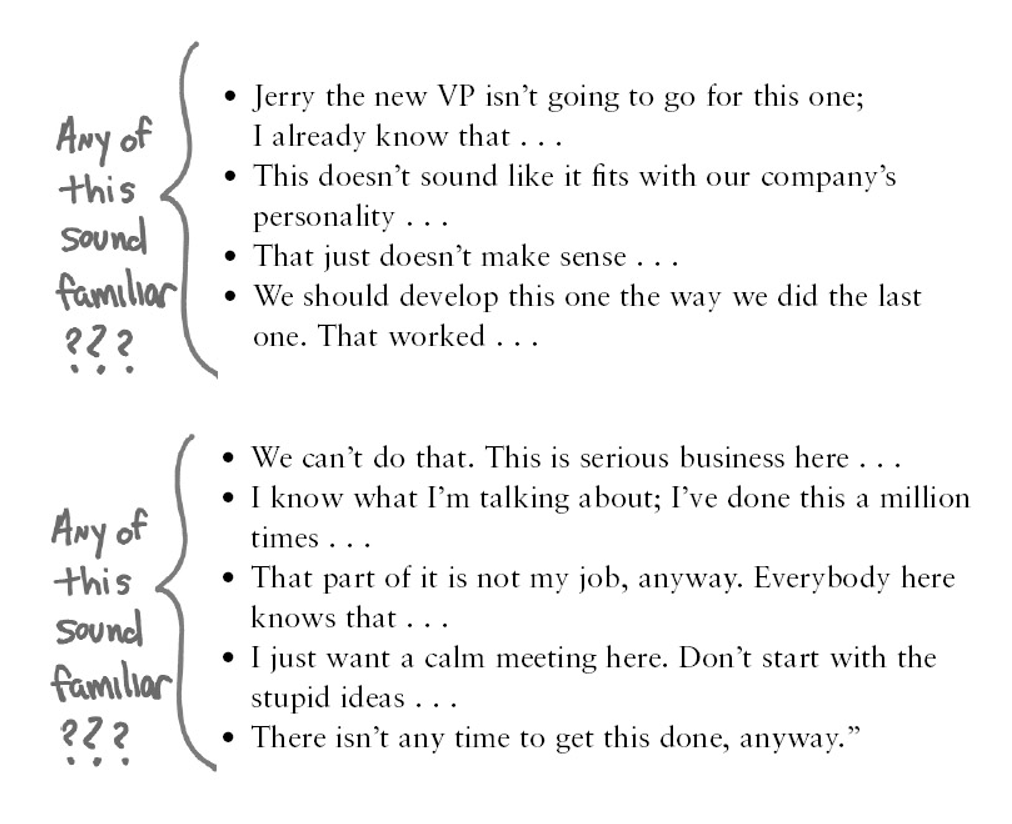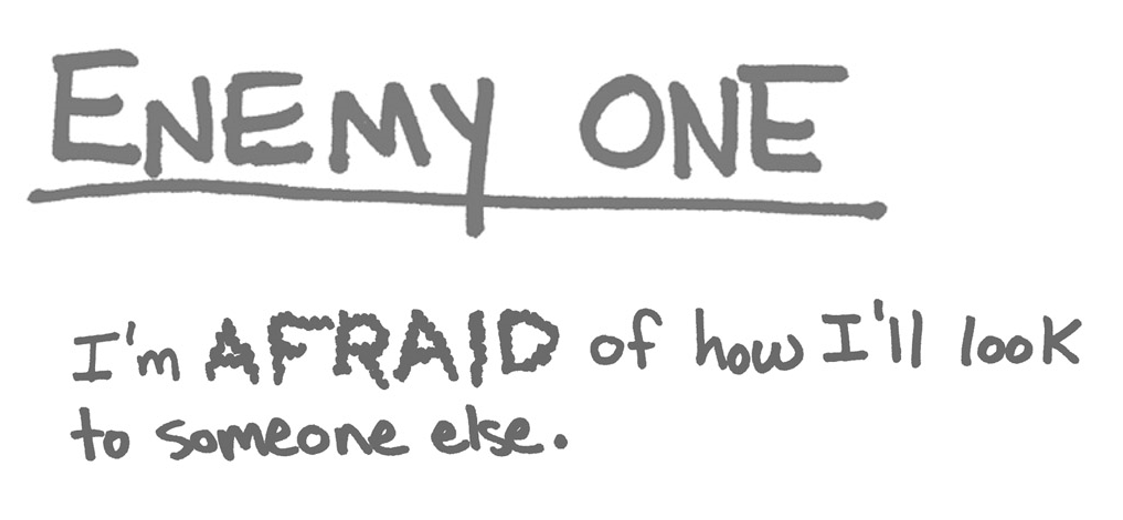Westside Toastmasters is located in Los Angeles and Santa Monica, California - Westside Toastmasters on Meetup
Chapter 2: Enemies Of Ideas and Innovation
Overview
If we were all fully capable of inventing novel solutions to every challenge we faced, all of our problems would be solved quickly. What I've found is that we're all held back to some degree by enemies of ideas. In this chapter, we will explore some simple ways to stop these enemies in their tracks before they shut us down completely.
'Of course,' you say to yourself, 'I have good ideas. I'm a creative problem solver. I'm open-minded. I'm not like those cartoon middle managers who hide in cubicles and squash any new ideas that cross their desks. No, I want to break boundaries, push the envelope.
'But-
Everybody wants to be innovative. Nobody wants to be known as the guy who said that the lightbulb was a bad idea that would never work. The tricky thing about the enemies of ideas, though, is that you can't always recognize them.
It's ironic that many patterns of behavior and modes of thinking that work well in performing certain structured activities (test taking, for example) only get in the way when we try to use them to come up with new ideas. We're taught from an early age to know the right answer, to be polite, to be sensible, to stick with the tried and true, to try harder. It's not so easy to abandon the behaviors that we know to be 'right.'
The tools and techniques that many companies employ provide an exquisitely sophisticated snapshot of what is; however, those same tools and techniques simply don't work to show what could be. Many companies rely on expensive and exquisitely detailed reports that show every nuance of brand sales, product usage, brand-switching behavior, cost sensitivity, and so on. What these reports don't show is how the power of an idea could change things.
In my work, I've encountered the same enemies of ideas over and over. Some of them turn up everywhere, while others seem more specific to particular organizations. In the pages that follow, we'll look at the ten most prevalent enemies of ideas that I've experienced.
The first step to eliminating these barriers is to recognize them. Which ones are most present in your work? In your life?
This is a big one, but it's a hard one to admit to. No one is willing to own up to being afraid. Cautious, prudent, perhaps even conservative, but not afraid. In the corporate world, admitting fear is tantamount to admitting failure. It's just not done.
But the fear is there, even if it's well disguised. We all remember only too well the feeling of being in front of the class and making some kind of mistake. Your face reddens; your adrenaline starts pumping; you feel sweat trickling down the back of your neck. It's not an experience that anyone wants to repeat.
We go through elementary school, high school, college, graduate school, and up through the ranks of companies, always with an authority figure that we have to please. Even CEOs have to answer to Wall Street. And underneath our well-coordinated businesswear, somewhere there's a fourth grader who has resolved never to look stupid in class again.
Maybe you don't call it fear; how about anxiety? Apprehension? Stress? Worry? When you don't feel secure in a situation, you won't allow yourself to risk. You can imagine pitching a new idea to your colleagues, clients, or supervisors and getting the eye roll, the puzzled look, the dismissive comment ('interesting, but not what we're going for here').
Fear is paralyzing. The fear of being judged, of looking stupid, of being wrong, of failing, of taking the blame-it's lurking just beneath the surface, in the clever disguise of caution. When you can't put the full force of your enthusiasm and passion behind a new idea, that idea will be dead on arrival.
One thing I've learned is that whatever I focus on grows. So if I focus on the anxiety that gnaws in my belly, it gets so big that it's paralyzing. On the other hand, if I focus on what my next appropriate action should be, it gets me into motion.





